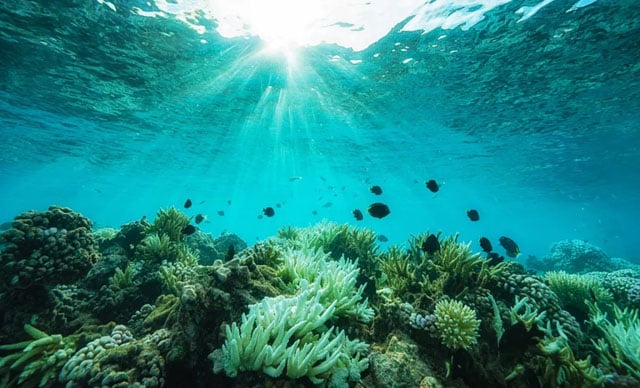News Flash
News Flash

UNITED NATIONS, United States, July 5, 2025 (BSS/AFP) - The International Seabed Authority (ISA) meets next week to continue debating rules for ocean floor mining in international waters, after the United States moved to unilaterally kick-start the controversial industry.
The Jamaica-based body, created by the UN Convention on the Law of the Sea, has been working for over a decade on rules governing mineral extraction on the high seas.
Nations are divided over the desire to exploit the ocean depths for nodules rich in metals needed for electric vehicles and other emerging technologies -- and worries about disrupting, or possibly decimating, fragile ecosystems.
The United States, which is not a signatory to the UN convention or an ISA member, disrupted the painstaking process this year when President Donald Trump issued an executive order calling for his government to speed up issuing permits for underwater mining, including in international waters.
Canadian firm The Metals Company (TMC) jumped at the opportunity and in April filed the first US application for a deep-sea mining license, angering environmental groups and many nations.
Against this backdrop, the ISA's 36-member executive council reconvenes Monday in Kingston for two more weeks of negotiations on a "mining code."
"Our shared objective remains the completion of the negotiations" this year, Council President Duncan Muhumuza Laki wrote in a letter ahead of the meetings.
The Ugandan diplomat said an additional session in the fall may be needed to meet a year-end deadline.
Louise Casson of Greenpeace called the push to wrap up negotiations "both very unwise and unfeasible."
Nations should not be "bullied" into rushing through rules after TMC's "incredibly controversial and rogue move," she told AFP.
Leticia Carvalho, secretary-general of the full ISA, said that with the global body "on the cusp of finalizing" its rules, "it is imperative that we get it right."
"When I speak of the need for timely action, this should in no way be interpreted as a call for rushed or unconsidered decisions," the Brazilian oceanographer told AFP in an e-mail.
- Moratorium -
Members are deeply divided over how to proceed, with a growing number calling for at least a temporary moratorium on deep-sea mining.
French President Emmanuel Macron opened the UN Ocean conference last month in Nice saying it would be "madness to launch predatory economic action that will disrupt the deep seabed, disrupt biodiversity, destroy it and release irrecoverable carbon sinks -- when we know nothing about it."
His country joined Chile, Costa Rica and Panama in a recent letter saying it is "clear" that the regulations "are not ready for adoption yet," and suggesting discussions on a new timeline.
"We categorically disassociate ourselves from any suggestion or interpretation that the Council is bound, legally or politically, to adopt the regulations by the end of the year," the letter said.
At the previous session in March, the ISA Council got through debate on 55 of 107 proposed rules.
Carvalho said though some members "have expressed differing views on the desirability or timing of future mining activities, the overwhelming majority have remained committed to continuing the negotiations with good faith, diligence and unity, recognizing the imperative of establishing a robust and science-based regulatory regime."
A meeting of the full 169-member ISA is scheduled for July 21-25.
The number of ISA members in favor of a precautionary pause to mining continues to grow -- from 12 in 2022 to 37 today, according to the NGO alliance Deep Sea Conservation Coalition -- but they are still far from the majority.
At that meeting, Chile hopes to revive its bid to adopt "the protection and preservation of the marine environment" as a "general policy" for the body.
The move is seen as a first step towards a moratorium.